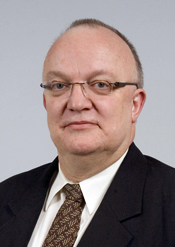“Nanotubes and Nanoparticles: Making Them Work for You”
by Janis Matisons, Gelest Inc
December 7, 2011
LRSM Reading Room
9:00-10:30 Tour of lab
10:30 am Talk (LRSM Reading Room)
12:00 pm -1:30 Lunch
1:30-2:00 Russ Composto
2:00-2:30 Karen Winey
2:30-3:00 Shu Yang
3:00-3:30 Charlie Johnson
4:00-4:30 Don Berry
 “Nanotubes and Nanoparticles: Making Them Work for You”
“Nanotubes and Nanoparticles: Making Them Work for You”
Janis Matisons, Gelest Inc
The discovery and development of new substances can ultimately improve the quality of life. Indeed, this is the cornerstone of requests to the public by the scientific, medical and engineering communities for the financial support of long-range research. Materials science is one of the main connecting points between chemistry and engineering, and it is the principal area through which researchers in the chemical disciplines can influence technology. The key objective in making new and advanced materials is to find ways to generate new properties at three levels:
(i) the molecular level
(ii) the materials level
(iii) the surface or interface level.
At Flinders University and more recently at Gelest Inc., I have been involved in three principal areas of research: (i) nanoparticles and nanotubes; (ii) polymers, and (iii) silicon materials. Within these areas I seek to build integrated materials that encompass molecular aspects with materials surface properties. Recent work making various nanoparticles and functionalising nanotubes, before putting them into nanopatterned polymers, will be shown. The technology behind the resulting inorganic-organic hybrid materials affords the possibility of producing materials that contain nanoscale segments, either directly bound to the polymer chains, or selectively placed within a copolymeric matrix. Work involving the functionalisation and use of carbon nanotubes; in using transition metal crosslinking agents to improve polymer properties and in making perfectly alternating siloxanes will be highlighted, together with some of my projects involving several industry partners. The industry projects I am involved in encompass coatings for the wine industry, anti-corrosion
coatings that contain no chromium, desalination membranes, high index materials for plastic lenses, nanocomposites, 3D self assembly of drug delivery nanotubes, approaches to new photonic crystal materials, new approaches to cancer therapies, silicon based drugs, bird flu adjuvants, and polymer additives in steel rolling oils.
Note, I will cover a only portion of these various projects in the seminar.
Professor Janis Matisons is Australia’s first appointed Chair in Nanotechnology at Flinders University, and has been involved in applied research and development since 1976 specialising in materials, polymer and silicon-based research over the last 8 years. He is the Chief and Founding Editor of the journal, Silicon Chemistry (now renamed Silicon), and has become the editor of a new book series, Advances in Silicon Science launched by Springer. He has participated in 28 industry-academic collaborative grants, resulting in over a dozen patents, the formation of three spin off companies, and contributing to his direct involvement in the launch of 76 products into the Australian marketplace. His research interests have covered a broad spectrum of research disciplines; from the awarding of the William Culross prize for his early research in organometallic chemistry at Adelaide University, to the Royal Australian Chemical Institute’s Polymer Citation for excellence in silicon research and education. In 2007 he received the Royal Australian Chemical Institutes highest award for applied research, the Applied Research Medal of Australia.
